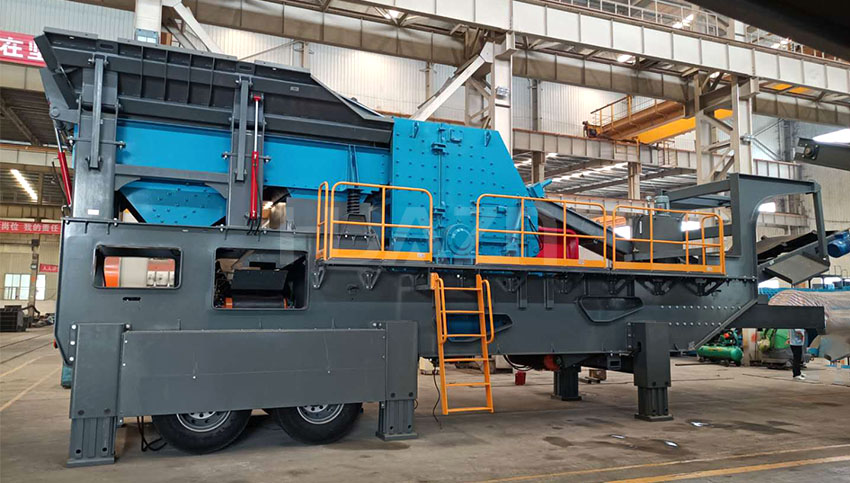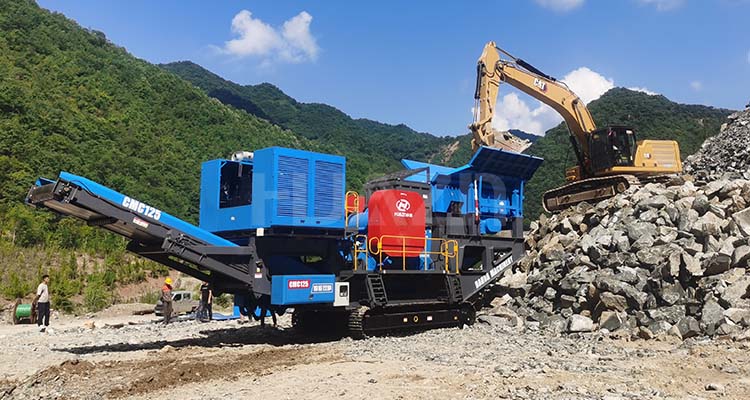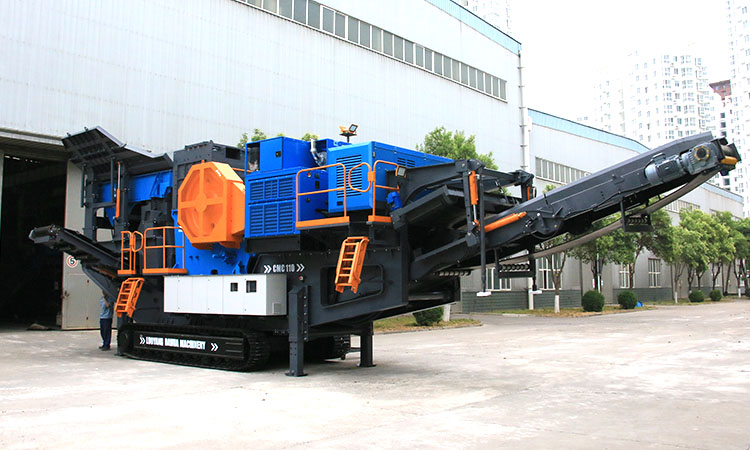The heart of this equipment is mobile crushing station – a compact, self-propelled plant that brings the crusher directly to the material source. Compare to traditional stationary crushers, mobile crushing station is more mobile and flexible. What is the advantages of disadvantages of mobile crushing station?

The Advantages of Mobile Crushing Stations
- Mobility and On-Site Flexibility
The mobile crusher is mounted on a tracked or wheeled chassis, these units can be easily transported between sites or moved around a single large site. This eliminates the need for multiple, fixed processing points and the associated costs of transporting raw material over long distances to a central crusher.
- Reduction in Transportation Costs
By processing material directly at the source—be it a demolition site, a remote quarry, or a road construction project—mobile crushers dramatically cut down on trucking requirements. This not only saves on fuel, labor, and vehicle maintenance but also reduces the environmental footprint associated with dust and emissions from heavy truck traffic.

- Rapid Setup and Deployment
Modern mobile crushers are designed for quick setup. With integrated hydraulic systems for adjusting legs, unlocking crushers, and folding conveyor belts, they can often be operational in under 30 minutes. This “plug-and-play” functionality maximizes productive crushing time, especially for short-term projects.
- Direct Adaptation to the Terrain
Their ability to operate on-site makes them ideal for projects in constrained or difficult terrain where building a fixed plant would be impractical or prohibitively expensive. They can crush material right where it lies, turning waste into valuable, reusable aggregate immediately.

The Disadvantages of Mobile Crushing Stations
- Limited Overall Output Capacity
While technology is continuously improving, mobile crushers typically have a limted hourly output capacity compared to large-scale stationary plants. They are optimized for flexibility and mobility, not for the sheer volume that a massive, dedicated stationary plant can achieve over years of operation in one location.
- Higher Operational and Maintenance Costs per Ton
The sophisticated engineering required to pack a full crushing circuit onto a mobile chassis comes at a cost. Wear parts can be more expensive, and the complex hydraulic and electronic systems require specialized knowledge for maintenance. Consequently, the cost per ton of processed material can be higher than in a stationary setup designed for high-volume, low-cost production.

- Reliance on a Consistent Feed
Mobile crushers, particularly smaller models, are sensitive to the consistency of the feed material. They perform best with a steady, controlled flow. Inconsistent feed size or frequent overloading can lead to blockages, wear, and downtime, negating the efficiency gains.
- Higher Fuel and Energy Consumption
A mobile unit carries its own power source, typically a diesel engine. This is less energy-efficient than a stationary plant that might be connected to the electrical grid. The constant movement and repositioning of the machine and its support vehicles also contribute to higher overall fuel consumption.

Luoyang Dahua Heavy Industry is a high-tech enterprise with research & development production, sales, and service. The mobile crushing station has been successfully applied in domestic and foreign mine crushing projects. The company has a professional R & D team, a strong after-sales team, from the equipment selection, site inspection, equipment manufacturing, installation, commissioning, delivery and other aspects for your service.

